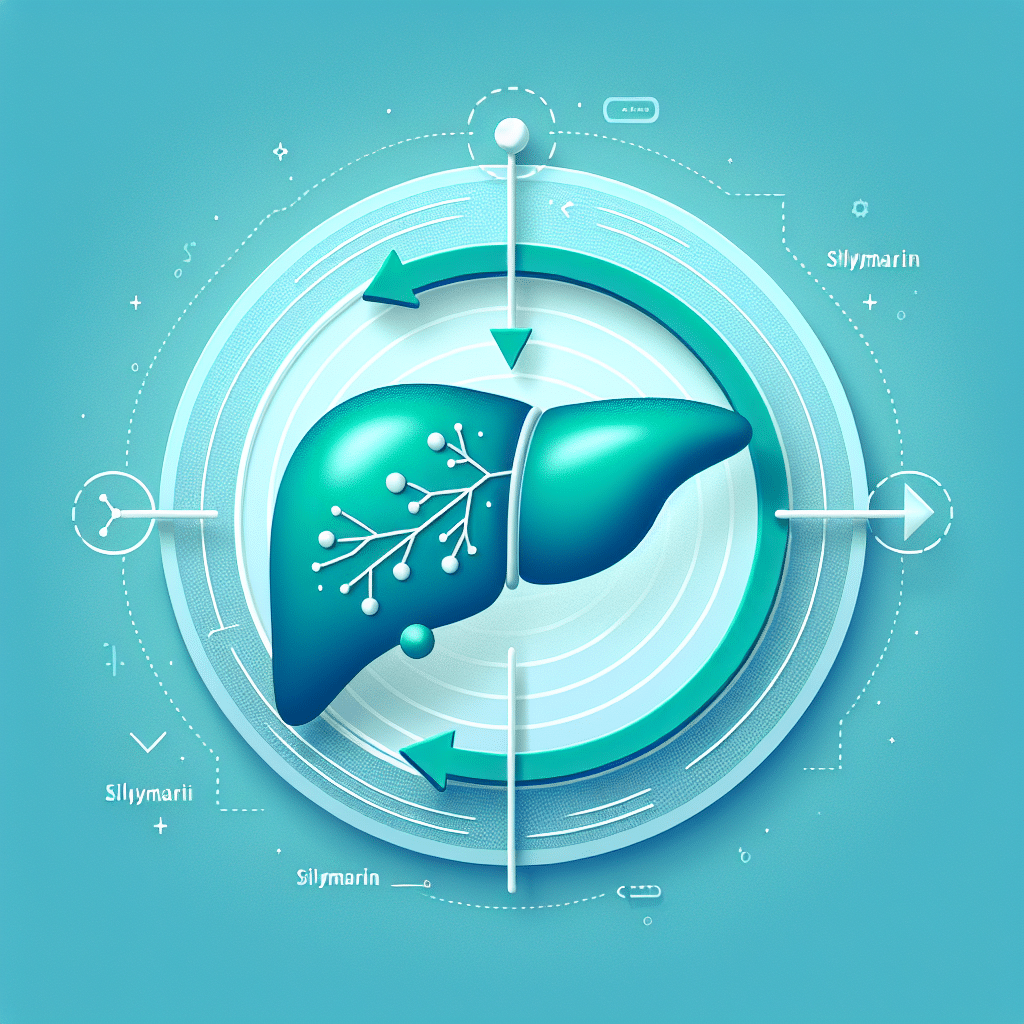Can silymarin treat fatty liver?
-
Table of Contents
- Silymarin’s Potential in Treating Fatty Liver Disease: Insights and Evidence
- Understanding Fatty Liver Disease
- What is Silymarin?
- Scientific Evidence on Silymarin and Liver Health
- Case Studies and Clinical Trials
- Understanding the Limitations
- Combining Silymarin with Lifestyle Changes
- Conclusion: Silymarin’s Role in Fatty Liver Treatment
- ETchem’s Protein Products: A Complementary Approach to Liver Health
Silymarin’s Potential in Treating Fatty Liver Disease: Insights and Evidence

Fatty liver disease, a condition characterized by the accumulation of fat in liver cells, has become a growing health concern worldwide. It often leads to more serious liver conditions such as steatohepatitis, fibrosis, and cirrhosis. With the rise of obesity and type 2 diabetes, the search for effective treatments has intensified. Silymarin, a natural compound extracted from milk thistle, has been the subject of numerous studies regarding its potential therapeutic effects on liver health. This article delves into the current research to explore whether silymarin can indeed treat fatty liver.
Understanding Fatty Liver Disease
Fatty liver disease is primarily of two types: alcoholic liver disease (ALD) and non-alcoholic fatty liver disease (NAFLD). While ALD is due to excessive alcohol consumption, NAFLD is associated with metabolic syndrome and is not related to alcohol intake. NAFLD can progress to non-alcoholic steatohepatitis (NASH), which can further lead to liver fibrosis and cirrhosis.
What is Silymarin?
Silymarin is a flavonolignan complex derived from the milk thistle plant, Silybum marianum. It consists of several active compounds, with silybin being the most potent. Traditionally used for treating liver disorders, silymarin is known for its antioxidant, anti-inflammatory, and antifibrotic properties, which may help protect liver cells from damage.
Scientific Evidence on Silymarin and Liver Health
Several studies have investigated the effects of silymarin on liver diseases, including fatty liver. The evidence suggests that silymarin may improve liver function by:
- Stabilizing cell membranes and preventing toxin penetration
- Enhancing protein synthesis and liver regeneration
- Exerting antioxidant effects to reduce oxidative stress
- Modulating immune responses
- Inhibiting the fibrogenic activity of hepatic stellate cells
Case Studies and Clinical Trials
Research has provided mixed results on the efficacy of silymarin in treating fatty liver disease. Some clinical trials have shown improvements in liver enzymes and histological markers, while others have not found significant benefits. For instance, a study published in the “World Journal of Hepatology” in 2017 reported that silymarin significantly reduced liver enzyme levels in patients with NAFLD. However, a systematic review in the “European Journal of Gastroenterology & Hepatology” in 2016 concluded that there was insufficient evidence to support the use of silymarin for NAFLD/NASH patients.
Understanding the Limitations
Despite promising findings, there are limitations to the current research on silymarin’s effectiveness in treating fatty liver disease:
- Variability in study designs and methodologies
- Differences in dosage and forms of silymarin used
- Lack of long-term studies to assess sustained effects
- Need for larger, multicenter trials to confirm benefits
Combining Silymarin with Lifestyle Changes
While silymarin may offer potential benefits, it is not a standalone cure for fatty liver disease. Combining silymarin supplementation with lifestyle modifications such as weight loss, dietary changes, and increased physical activity is crucial for managing the condition effectively.
Conclusion: Silymarin’s Role in Fatty Liver Treatment
In conclusion, silymarin has demonstrated potential benefits for liver health, particularly in the context of fatty liver disease. However, more robust clinical trials are needed to establish its efficacy and determine optimal dosing strategies. Patients should consult healthcare professionals before starting any new supplement regimen, especially for conditions like fatty liver disease.
ETchem’s Protein Products: A Complementary Approach to Liver Health
In addition to exploring natural supplements like silymarin, incorporating high-quality protein products into one’s diet can support liver health. ETchem, a reputable Chinese Collagen factory manufacturer and supplier, offers a range of collagen products that can complement a liver-healthy lifestyle. Their marine, fish, bovine, and chicken collagen products are characterized by neutral taste and instant solubility, making them an excellent addition to a balanced diet.
About ETChem:
ETChem, a reputable Chinese Collagen factory manufacturer and supplier, is renowned for producing, stocking, exporting, and delivering the highest quality collagens. They include marine collagen, fish collagen, bovine collagen, chicken collagen, type I collagen, type II collagen and type III collagen etc. Their offerings, characterized by a neutral taste, instant solubility attributes, cater to a diverse range of industries. They serve nutraceutical, pharmaceutical, cosmeceutical, veterinary, as well as food and beverage finished product distributors, traders, and manufacturers across Europe, USA, Canada, Australia, Thailand, Japan, Korea, Brazil, and Chile, among others.
ETChem specialization includes exporting and delivering tailor-made collagen powder and finished collagen nutritional supplements. Their extensive product range covers sectors like Food and Beverage, Sports Nutrition, Weight Management, Dietary Supplements, Health and Wellness Products, ensuring comprehensive solutions to meet all your protein needs.
As a trusted company by leading global food and beverage brands and Fortune 500 companies, ETChem reinforces China’s reputation in the global arena. For more information or to sample their products, please contact them and email karen(at)et-chem.com today.



